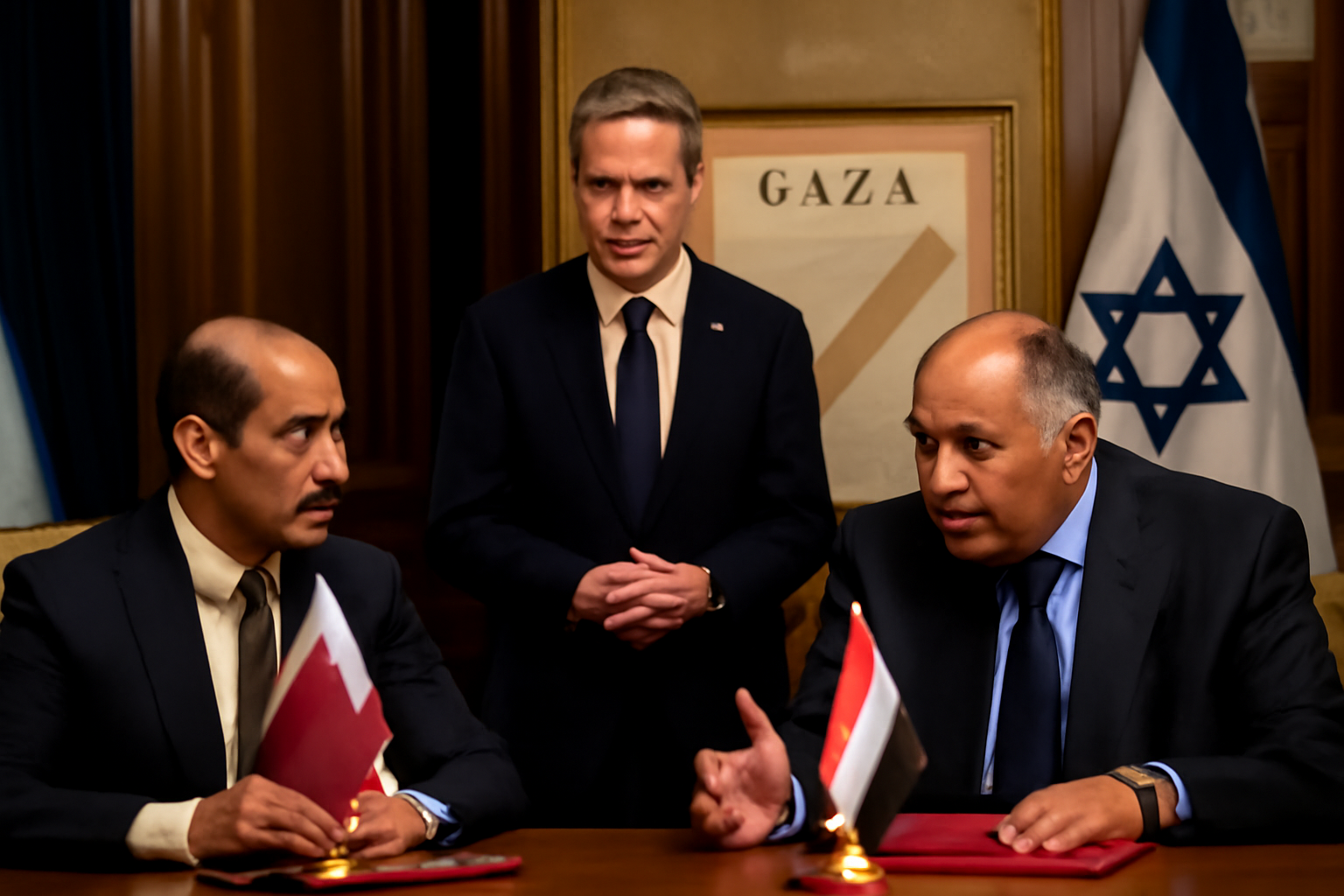Qatar and Egypt’s Influence and Limits in Gaza Ceasefire
 Qatar and Egypt’s Influence and Limits in Gaza Ceasefire One Nation Voice New
Qatar and Egypt’s Influence and Limits in Gaza Ceasefire One Nation Voice New
Qatar and Egypt’s Influence and Limits in Gaza Ceasefire
Gaza strip is an old hotspot of any Middle Eastern conflict. Ceasefires in this volatile region are volatile and can be short lived. Qatar and Egypt, two regional players have been involved in mediating between Israel and Hamas. There are, however, limitations to their influence.
International Diplomatic Juggle
Qatar and Egypt can be singled out. Qatar has been communicating with the Hamas over the years. It also serves to give financial support as well as providing a home to some Hamas heads in Doha. Egypt on the contrary shares border with Gaza and has a marked history with both Palestinians and Israel involved. Cairo is also in negotiation with Hamas although it is using its authority and safety.
Juggling Alliances
However, such a balancing act has enabled both states to work as mediators. When there are outbreaks of violence, international stakeholders such as the United States and United Nations will resort to Qatar and Egypt. They have access that other countries do not since they are located both geographically and politically. Their efforts however are less successful.
Short-term Armistices Vs. Permanent Peace
The two nations have played a major role in negotiating temporary ceasefires. Egypt especially is the country that has renegotiated multiple ceasefires since the 2014 war in Gaza. Economic incentives and humanitarian aid have been another feature added by Qatar to these endeavors.
The temporary fix
At the same time these efforts have not succeeded in achieving sustainable peace. Ceasefires are not usually observed with the passage of weeks, if not in days. This contradiction reveals the degree to which those countries can go.
They are mainly a reactionary force. Instead of being there before the eruption of violence, they go there when it already appears. They have short term level of influence yet depreciate when there is no fixing in the root problems politically.
The reasons Their influence is substantial.
One thing that Egypt and Qatar have if others are not, is mutual confidence. Israel considers Egypt as a stabilizer. Qatar is a lifeline of Hamas. This twin credence plays a decisive role in an environment where most of the participants gain the label of an educated predilection on one party or the other.
Also, both states have maintained channels of communication even at the time of serious diplomatic tensions. This has enabled them to be dependable mediators. Their endeavors usually assist in minimizing the casualties of civilians and opening humanitarian channels. In this respect, they are not only diplomats, but a life saver.
The Boundaries of Leverage
There is, however, a restraint that accompanies this influence. Both Qatar and Egypt rely on larger-scale geopolitical coalition. Egypt tends to agree with the interest of the U.S. Qatar is another country which has a U.S. military base although the government is tied to Hamas. These alliances influence the extent to which the individual nations can pressurize either of the parties.
Moreover, they cannot regulate the root problems: occupation, blockade and political fragmentation. Unless there is any progress in these areas, ceasefires are mere band aid solutions.
The Impact of pressure and inner strife
Both countries are influenced by international pressure. Egypt has its financial trouble and internal instability. It must strike the balance of being a mediator and its own priorities. On the same note, Qatar aims at enhancing its international diplomatic service, but it needs to move progressive without compromising major partners.
Individual and societal demands restrict them to present radical solutions. They are commonly being trapped to mediate between dialogue instead of directing to a lasting solution.
Aid as an instrument and a hazard
They have invested hundreds of millions of dollars in Gaza by Qatar. It finances infrastructure, pay and fuel. This assistance lowers humanitarian crises. However, critics believe that it will also extend the war to ease the pressure on Hamas to concede politically.
Despite this, Egypt employs the use of border control. It closes and opens Rafah crossing using political reasons. Such leverage is good, but not sufficient to institutionalize peace.
The Need to Have the Bigger Framework
Finally, Qatar and Egypt alone are unable to resolve the crisis of Gaza. Their contribution is critical, yet it must be a component of a bigger picture. The root causes require regional cooperation, U.S. diplomacy and international law.
Unless such a wider backing is forthcoming even the most successful ceasefires will sooner or later disintegrate. Mediation activities should be accompanied by real political change to succeed.
Qatar and Egypt have demonstrated their potentials of being good mediators in Gaza conflict. Their presence has resulted in temporary relief through the times of excessive violence. They, however, have little to no chance to enforce or maintain a ceasefire. Their effectiveness is shaped by geography, political relationships as well as internal constraints.
A united international approach should help them to actualize the peace. In the meantime, their impact would be irreplaceable, yet non-comprehensive







